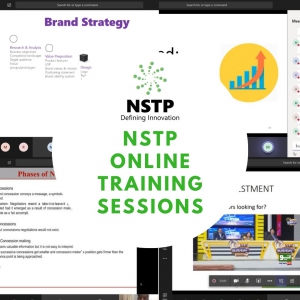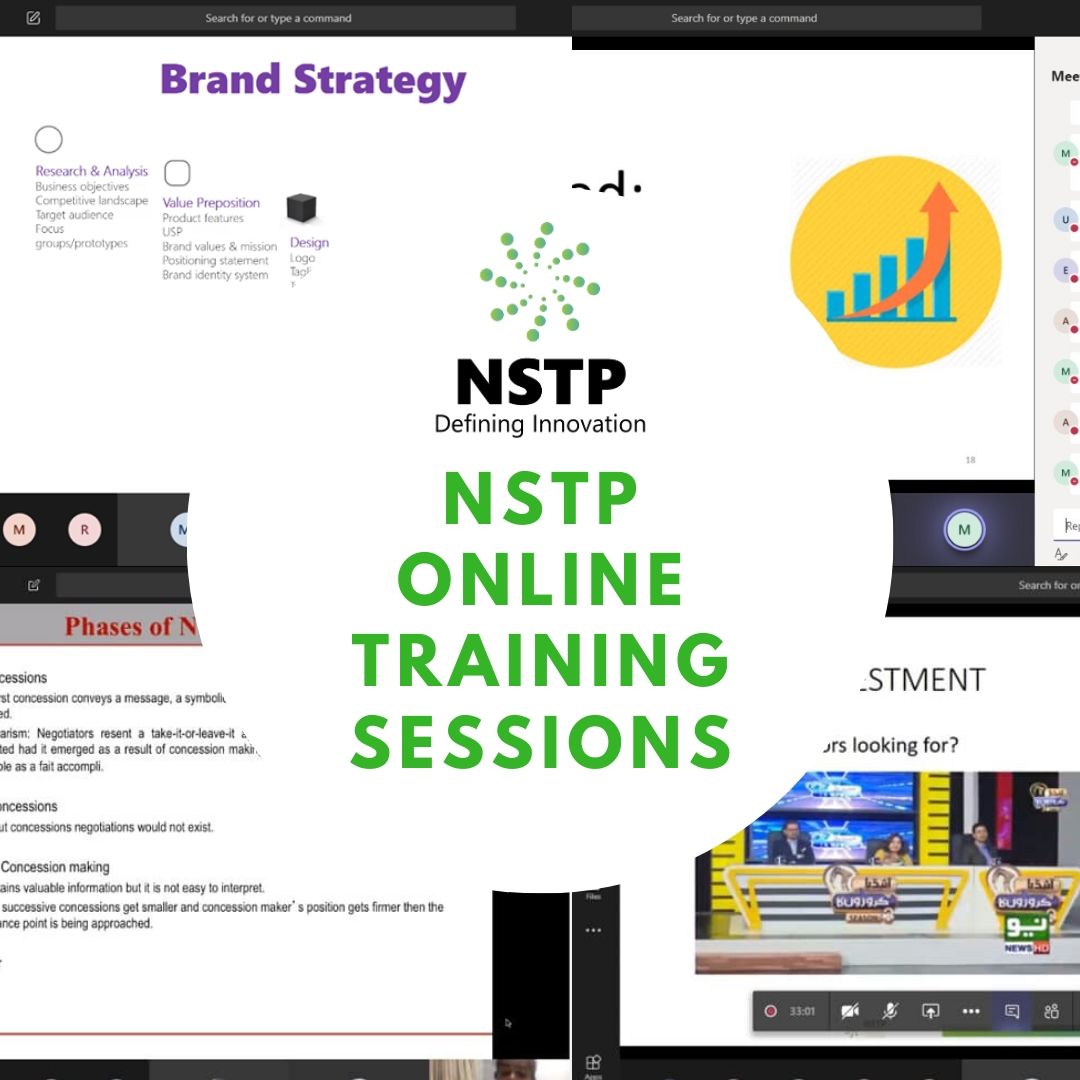 In February, the world was affected by the pandemic COVID-19 which not only curbed day-to-day activities but also turned into a challenge as the pandemic grew. Most of the companies whether public or private endorsed social distancing and work from home policies. Through the e-training sessions, that are accessible and favorable to all including tenants, startups and public, NSTP is boosting start-ups are on their way of building themselves in the market.
In February, the world was affected by the pandemic COVID-19 which not only curbed day-to-day activities but also turned into a challenge as the pandemic grew. Most of the companies whether public or private endorsed social distancing and work from home policies. Through the e-training sessions, that are accessible and favorable to all including tenants, startups and public, NSTP is boosting start-ups are on their way of building themselves in the market.
To ensure commitment, an opportunity of online registrations was created and by providing a schedule for the attendants by including the courses that cover the knowledge and skills they might need. The bilateral and comprehensive session of 2 hours will help startups reach their full capacity.
The free online training courses were planned de novo, including interesting cas e studies, presenting branching scenarios, interactive infographics, YouTube videos and some activities to help learners practice their new knowledge, learn from feedback, and feel confident they’re educated enough on the topic in hand to move to the next session.
e studies, presenting branching scenarios, interactive infographics, YouTube videos and some activities to help learners practice their new knowledge, learn from feedback, and feel confident they’re educated enough on the topic in hand to move to the next session.
Here is the list of our online courses and what our trainers emphasized on:
- Startup Law and Regulatory Framework session by Mr. Ahmed Uzair. He talked about how startups should deal with any legal problems faced during the beginning phase of a business such as avoiding founder conflicts, importance of licensing and patenting, copyrights, and trademarks in a business.
- Business Finance sessions by Mr. Ahad Wazir. He explained the importance of underlying the financial flow of one’s business in his online training. He also emphasized financial statements, balance sheet, and the difference between accounting principles. Businesses make mistakes in the initial investment decisions, and such mistakes can make the companies liable. He also discussed the basics of creating a financial plan and its significance in a startup. A company’s financial plan determines the viability of one’s business idea and the chances of interested investors in a business.

- Equity and Funding’s sessions by Mr. Malik Mirza. In the session, he shed light on identifying assets and expenses of one’s company. He highlighted the importance for one to know about investing their money in a business. Therefore, having a funding strategy is vital to starting a small venture or a startup and how to control risk in the various stages of business and also to have a long-term plan that will help you ensure that your investors take you. In the second session, Mr. Malik Mirza talked about the cheaper options, and know-how of choosing from the financing options available in the market. Such choices and approaches define the value of a startup and its value in the market.
- Term Sheet and Capitalization sessions by Mr. Malik Mirza. In his session, he discussed how to deal with “venture capitalists” which might be tricky for the startups as they need to learn how much equity and say the venture capitalists have in the plans and decisions of a startup. He explained and helped the participants become well-acquainted with the terms used by Venture capitalists and startups.
- Negotiation and Fundraising Strategy by Kishwar Sameen explained that before startups start fundraising, meet with advisors and attorneys, they need to identify which three to four items will be the most important to focus on during negotiations. Too many founders skip this step, which can lead to severe and lasting issues. By first identifying what matters for their company’s fundraise, startups can negotiate. Advisors can provide better recommendations based on the priorities of the startup. Investors can draft a term sheet based on startup’s must-haves—or back out and not waste time if their goals aren’t aligned. By carefully selecting what matters most, a founder can avoid wasting careful negotiating leverage on terms that don’t matter as much.
- Branding and Design by Shahzaib Atif focused on creating, designing and launching a brand. Startups will learn components of significant company names, and how to position their product effectively in the eyes of the consumer. Developing a solid brand makes selling easier. It will help startups communicate their superiority with ease so that their startup can stand out from the competition. Differentiating through brand strategy and design will help startups create an interesting brand.
NSTP with their cost-effective e-training is an avenue for the startups to get back on track and seek guidance from potential trainers with real-life examples, as the current pandemic situation and the business affected by the economic storm does not allow startups to host one-on-one training sessions.

